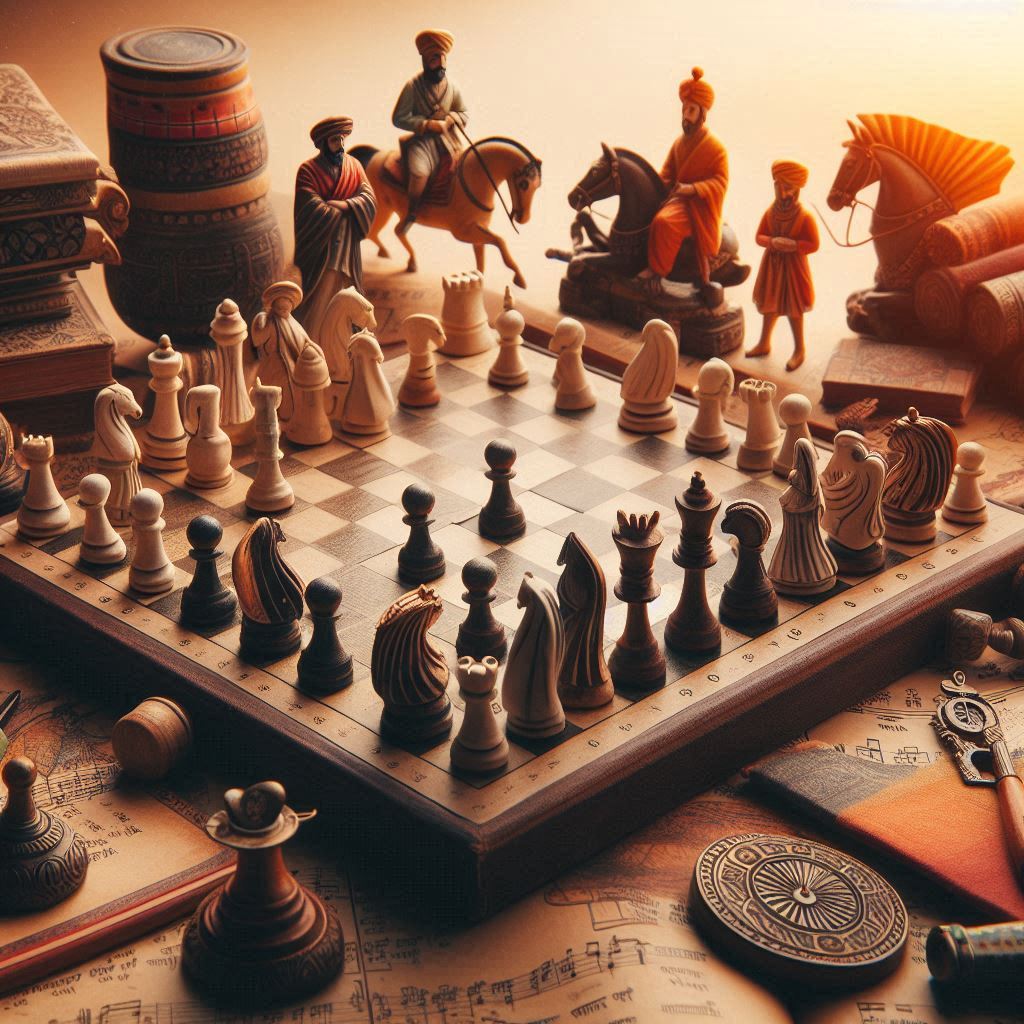Introduction
Chess has a rich history filled with legendary matches that have captivated enthusiasts and shaped the game’s evolution. These famous games offer valuable lessons in strategy, tactics, and mental fortitude. This blog delves into some of the most iconic chess matches, highlighting key moments and what we can learn from them.
1. The Immortal Game (Anderssen vs. Kieseritzky, 1851)
Overview
The Immortal Game is one of the most celebrated matches in chess history, played between Adolf Anderssen and Lionel Kieseritzky in 1851. This game is renowned for its brilliant sacrifices and aggressive play.
Key Moments
- Knight Sacrifice: Anderssen’s daring knight sacrifice on move 11 (11. Nf6+) set the tone for an aggressive and dynamic game.
- Bishop Sacrifice: Following up with a bishop sacrifice (18. Bxb2+), Anderssen continued his relentless attack.
- Queen Sacrifice: The game reached its climax with Anderssen sacrificing his queen on move 22 (22. Qxe7+), leading to a beautiful checkmate sequence.
Lessons Learned
- Sacrifices: Understanding when and how to sacrifice pieces can lead to powerful attacks and decisive victories.
- Aggressive Play: Bold, aggressive play can unsettle opponents and create opportunities for brilliant combinations.
- Creative Thinking: Innovative and creative strategies can yield spectacular results, even against strong opposition.
2. The Evergreen Game (Anderssen vs. Dufresne, 1852)
Overview
Another masterpiece by Adolf Anderssen, the Evergreen Game was played against Jean Dufresne in 1852. This game is famous for its tactical brilliance and stunning final combination.
Key Moments
- Piece Activity: Anderssen’s active piece placement throughout the game created constant pressure on Dufresne’s position.
- Queen Sacrifice: The queen sacrifice on move 22 (22. Qf6+) opened up the position for a decisive attack.
- Rook and Bishop Coordination: The coordination between Anderssen’s rook and bishop led to a beautiful checkmate on move 24.
Lessons Learned
- Piece Activity: Actively placed pieces can dominate the board and create multiple threats.
- Coordination: Effective coordination between pieces is crucial for executing successful tactics and combinations.
- Tactical Awareness: Always be alert for tactical opportunities and combinations that can turn the tide of the game.
3. The Game of the Century (Fischer vs. Byrne, 1956)
Overview
Played by a 13-year-old Bobby Fischer against Donald Byrne in 1956, this game is famously known as the Game of the Century. Fischer’s remarkable play and deep understanding of the game were evident throughout this match.
Key Moments
- Opening Play: Fischer’s innovative opening play (6. … Na4) set the stage for an unconventional game.
- Middle Game Sacrifice: Fischer’s daring knight sacrifice on move 17 (17. … Nxe4) demonstrated his deep tactical vision.
- Endgame Precision: Fischer’s precise endgame play, culminating in a checkmate with a rook and bishop, showcased his exceptional skill.
Lessons Learned
- Innovative Play: Creativity and innovation in the opening can lead to advantageous and unbalanced positions.
- Deep Calculation: Accurate calculation and foresight are essential for executing complex combinations.
- Endgame Mastery: Strong endgame skills can convert an advantage into a decisive victory.
4. The Opera Game (Morphy vs. Duke of Brunswick and Count Isouard, 1858)
Overview
Played in 1858, this game features Paul Morphy against the Duke of Brunswick and Count Isouard. Known as the Opera Game, it is celebrated for Morphy’s rapid development and brilliant tactical play.
Key Moments
- Opening Principles: Morphy’s adherence to opening principles, such as rapid development and central control, laid the foundation for his victory.
- Sacrifices: Morphy’s sacrifices, including the famous rook sacrifice on move 17 (17. Rxd7+), demonstrated his tactical acumen.
- Checkmate: The game concluded with a checkmate on move 17, showcasing Morphy’s exceptional attacking skills.
Lessons Learned
- Opening Principles: Adhering to basic opening principles can provide a strong foundation for successful play.
- Tactical Execution: Well-timed sacrifices and tactical maneuvers can decisively alter the course of the game.
- Rapid Development: Prioritizing rapid development of pieces can lead to early and effective attacks.
5. Kasparov vs. Topalov (1999)
Overview
Garry Kasparov’s game against Veselin Topalov in 1999 is often regarded as one of the greatest chess games ever played. This game is notable for its deep strategic complexity and stunning tactical sequences.
Key Moments
- Strategic Planning: Kasparov’s deep strategic planning and understanding of the position set the stage for his brilliant play.
- Tactical Brilliance: Kasparov’s tactical brilliance was on full display with the spectacular rook sacrifice on move 24 (24. Rxd4).
- Endgame Technique: Kasparov’s flawless endgame technique secured his victory, highlighting his mastery of the game.
Lessons Learned
- Strategic Depth: Deep strategic planning and understanding of the position are crucial for high-level play.
- Tactical Awareness: Combining strategic understanding with tactical awareness can lead to brilliant and decisive combinations.
- Endgame Skills: Mastery of endgame techniques is essential for converting advantages into victories.
Practical Tips from Famous Matches
Analyze Your Games
Regularly analyze your games to identify mistakes, learn from them, and understand your strengths and weaknesses. Reviewing famous games can also provide valuable insights and inspiration.
Study Tactics
Improving your tactical skills is crucial for finding combinations and executing successful attacks. Solve puzzles and study tactical themes regularly.
Learn Opening Principles
Focus on basic opening principles, such as controlling the center, developing pieces rapidly, and ensuring king safety. Understanding these principles can help you navigate the opening phase more effectively.
Develop Endgame Skills
Endgame skills are vital for converting advantages into wins. Study common endgame patterns and practice basic techniques to improve your proficiency.
Stay Creative and Flexible
Be open to creative and unconventional ideas in your play. Flexibility in thinking and adaptability to different situations can give you an edge over your opponents.
FAQs
Why is it important to study famous chess matches?
Studying famous chess matches provides insights into high-level strategic and tactical play. It helps you learn from the best, understand advanced concepts, and apply these lessons to your own games.
How can I improve my tactical skills in chess?
Improve your tactical skills by solving puzzles, studying tactical themes, and regularly practicing combinations. Analyzing famous games with brilliant tactics can also enhance your understanding.
What are the basic opening principles I should follow?
Basic opening principles include controlling the center, developing pieces rapidly, ensuring king safety, and avoiding unnecessary pawn moves. These principles provide a strong foundation for the rest of the game.
How can I enhance my endgame technique?
Enhance your endgame technique by studying common endgame patterns, practicing basic endgames, and understanding key concepts like opposition, pawn promotion, and king activity.
Why is creativity important in chess?
Creativity is important because it allows you to find unique solutions, surprise your opponents, and adapt to different positions. Creative thinking can lead to innovative strategies and successful outcomes.
How often should I analyze my own games?
Analyze your games regularly, ideally after each one. Consistent analysis helps reinforce lessons learned, identify recurring mistakes, and track your progress over time.
Conclusion
Famous chess matches offer a treasure trove of lessons for players of all levels. By studying these iconic games, you can gain valuable insights into strategic planning, tactical execution, and endgame mastery. Whether you’re a beginner or an advanced player, the lessons learned from these legendary games can help you improve your skills and elevate your chess game to new heights.



